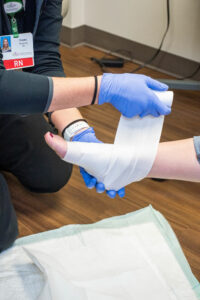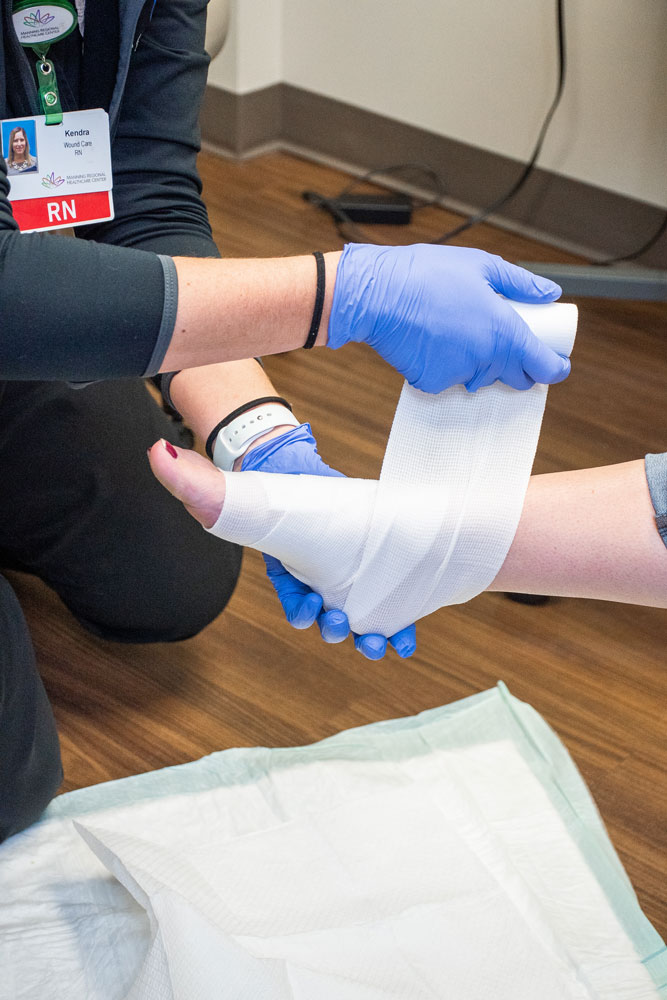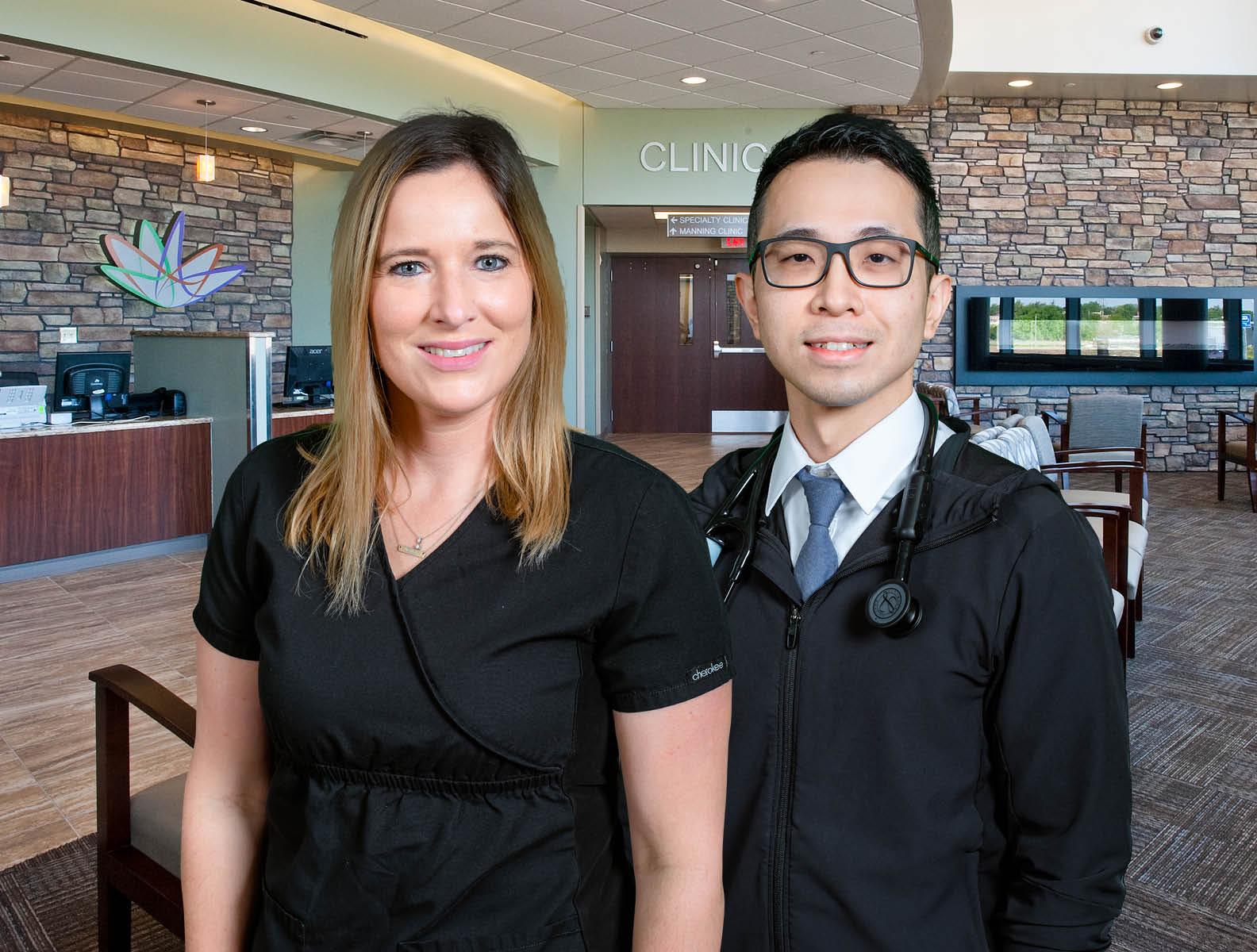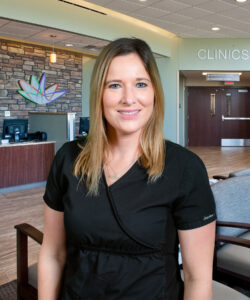“After a car accident left me with extensive injuries, the Wound Care team at Manning Regional Health Care Center has my sincere thanks for all they have done to heal my wounds,” shares Christina Brown, a resident of Manilla.
When Christina was referred to receive wound care treatment at Manning Regional, she had four large wounds on her leg. 
“Christina’s wounds were typical of what we see and treat here at MRHC,” said Kendra Tiefenthaler, RN, MRHC Wound Care Clinic Coordinator. “Christina’s wounds were very large and deep in size requiring advanced treatment options to manage and heal the wounds.”
As with many wound care patients that Dr. Luong treats, he begin with an evaluation to assess the cause of the wound, look for any signs of infection, and determine the best treatment option for wound healing. Initially, Christina received wound care weekly and as the wound began responding to treatment, she transitioned to appointments every two weeks.
“Although my wounds were quite extensive and took what seemed like a very long time to heal, the staff controlled the pain and made me comfortable,” said Christina.
At each visit, Christina was seen by a nurse and doctor to monitor healing and assess for any signs of infection or other possible concerns.
“Depending upon the severity of the wound, it is important that the wound is cleaned regularly, and bandages are applied to help the wound heal more rapidly than if they weren’t treated,” said Tiefenthaler.
Although this was the first time Christina had received treatment for a wound, she shared how positive her experience was.
“Wound care is not something I would choose to do, but the wound care team made me as relaxed and comfortable as possible,” Christina said. “Everything was thoroughly explained, and all necessary steps were taken to ensure the proper healing. The care I received was excellent.”
As far as the impact COVID-19 has had on her treatment, Christina said there have not been any problems.
“All precautions to ensure safe and healthy treatment were taken and I felt comfortable going to MRHC,” she shared.
“I would definitely recommend Manning Regional’s wound care services to others. They are a very caring and competent group of individuals,” adds Christina. “I will miss my visits with them. They are a great group, and I have enjoyed getting to know them.”
Although Christina’s wounds were the result of a car accident, there are many other types of hard-to-heal wounds that the Wound Care Clinic treats. These wounds may be a result from pressure, trauma or infection. MRHC has many types of advanced treatment options available for wound care based on the type and severity of the wound.
Sometime, even the simplest of wounds can turn into a significant problem because the body’s normal healing process is affected. A wound that is not healing properly may be complicated by underlying conditions such as diabetes, circulation problems or previous radiation treatment. Non-healing wounds can have serious health consequences and may adversely affect a patient’s quality of life.
“It is important that patients reach out as soon as they realize they have a wound that is not healing properly,” stated Tiefenthaler. “If we can catch the wound early enough, oftentimes we can get a jump start on the healing process, decreasing the number of visits necessary for full healing.”
If you or a loved one has a wound that is of concern or is not healing properly, call the Wound Care Center at MRHC for an evaluation at (712) 655-8100.


